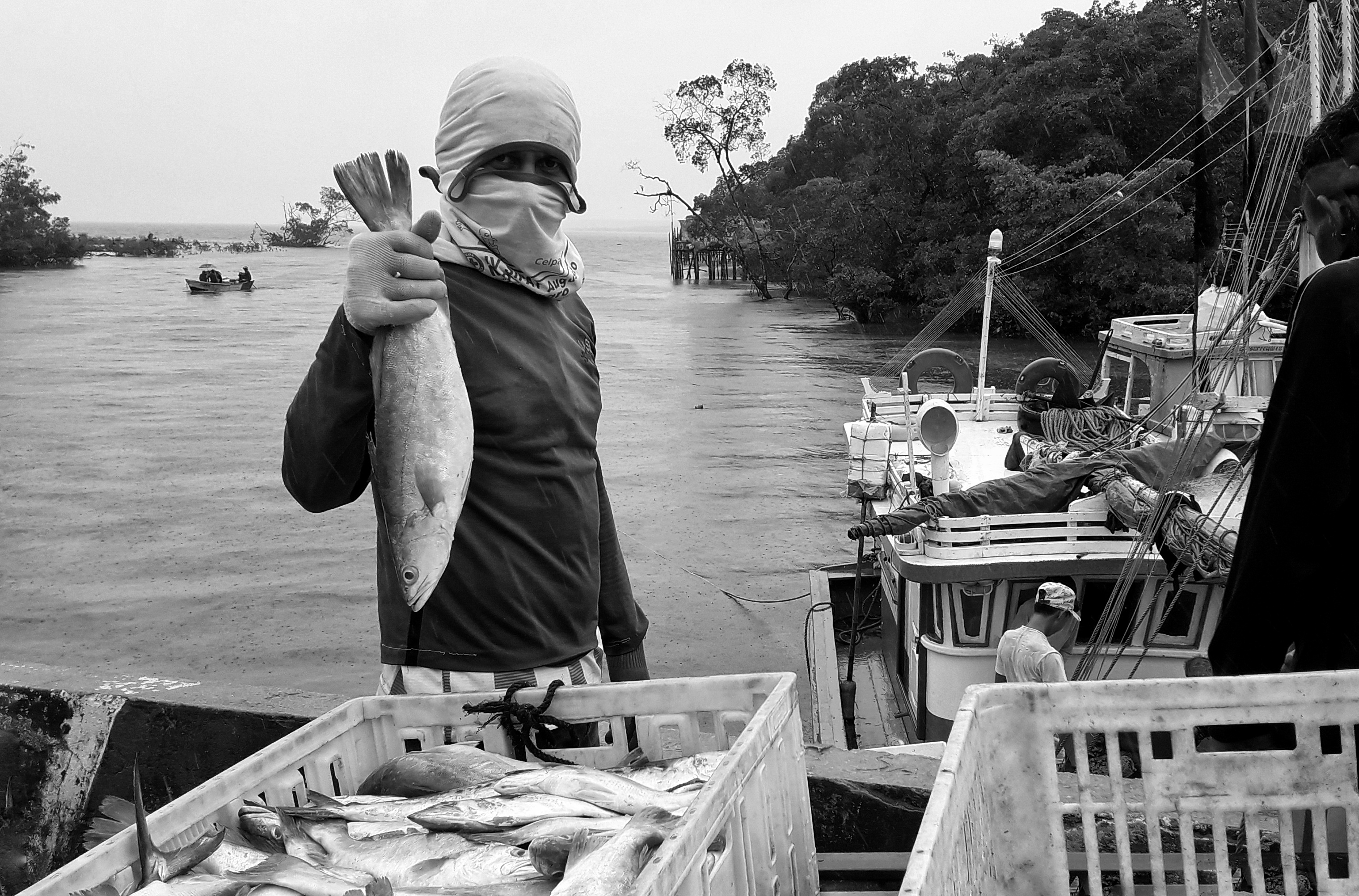‘KIAL IS THE FISH DONATED ON THE PORT’S EDGE’:
THE PRACTICE OF SHARING FISH IN THE FISHERMAN’S VILLAGE COMMUNITY, IN BRAGANÇA, PARÁ
DOI:
https://doi.org/10.22478/ufpb.2447-9837.2024.n17.69750Abstract
This article reflects on an apparently free practice carried out by fishermen, fisherwomen and residents of the Vila dos Pescadores community, Caeté-Taperaçu Marine Extractive Reserve, in Bragança’s town, on the coast state’s Pará: the “kial”, which can be summed up as the act of asking for and giving away fish on the port’s edge at the time of landing. As a result of the diminishing harvests of the most profitable species on the market, fishermen and fisherwomen who work in the estuary find it difficult to maintain their social reproduction. In this way, as well as an custom of solidarity and mutual aid, the “kial” has also become a commercial practice used as a strategy to overcome the financial difficulties of these people and guarantee their subsistence in the face of the hardships of artisanal fishing.
KEYWORDS:
Anthropology of fishing. Caeté-Taperaçu Marine Extractive Reserve. Artisanal fishing. Reciprocity.
Downloads

Downloads
Published
Issue
Section
License
- Autores mantém os direitos autorais e concedem à revista o direito de primeira publicação, com o trabalho simultaneamente licenciado sob a Licença Creative Commons Attribution que permite o compartilhamento do trabalho com reconhecimento da autoria e publicação inicial nesta revista.
- Autores têm autorização para assumir contratos adicionais separadamente, para distribuição não-exclusiva da versão do trabalho publicada nesta revista (ex.: publicar em repositório institucional ou como capítulo de livro), com reconhecimento de autoria e publicação inicial nesta revista.
- Autores têm permissão e são estimulados a publicar e distribuir seu trabalho online (ex.: em repositórios institucionais ou na sua página pessoal) a qualquer ponto antes ou durante o processo editorial, já que isso pode gerar alterações produtivas, bem como aumentar o impacto e a citação do trabalho publicado (Veja O Efeito do Acesso Livre).


